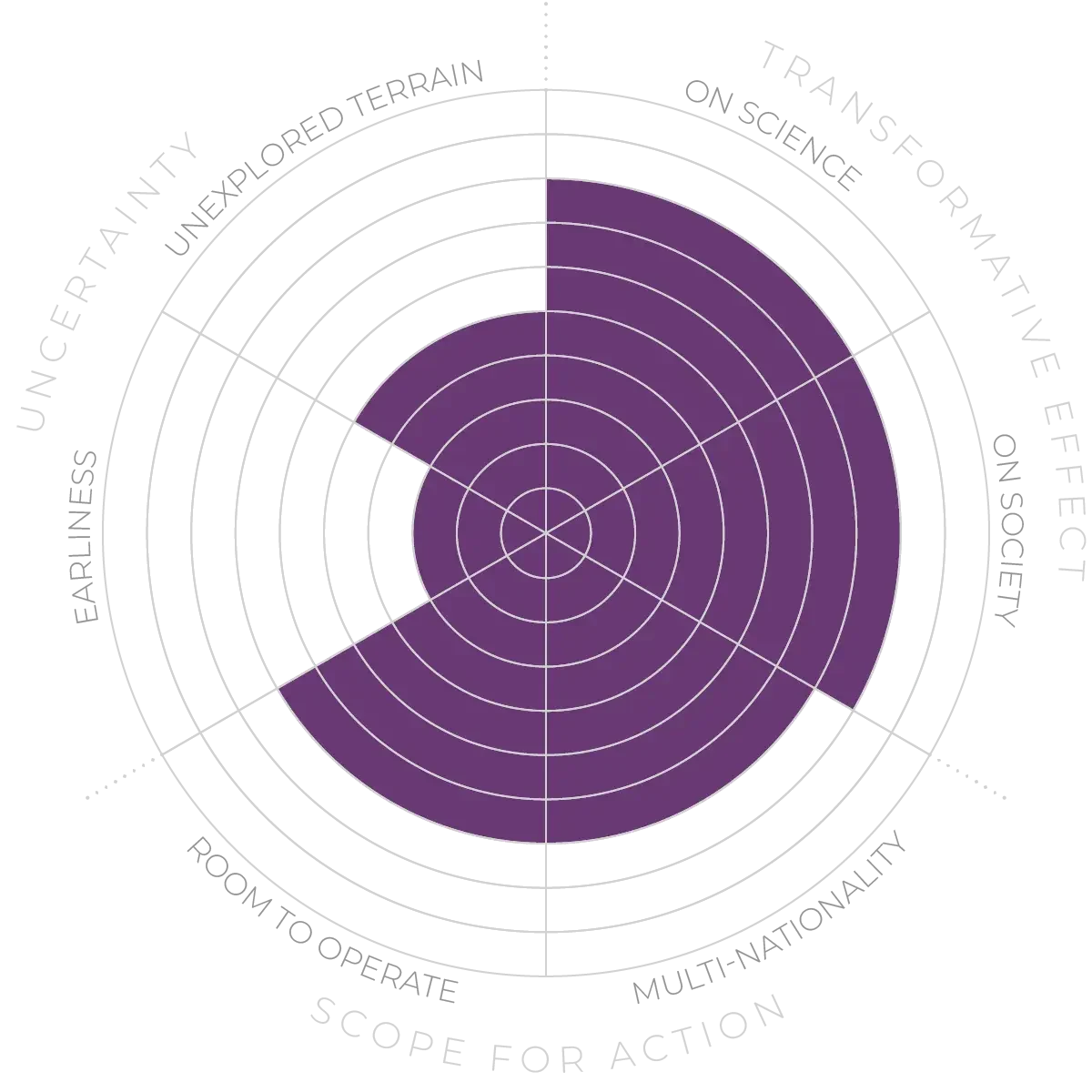Future Horizons:
10-yearhorizon
CI applications grow
25-yearhorizon
Deliberative democracy becomes widespread
New tools for gathering and visualising data, and open-source repositories of information and tools, are helping enhance the Collective Intelligence (CI) of large groups. AI is also playing a growing role in facilitating CI by filtering complex data, organising human knowledge and optimising deliberative processes.10 Powerful large language models (LLMs) trained on reams of internet data both encapsulate the CI of millions and can actively support CI by making it easier for people to engage with deliberative and collaborative processes.11,12 Caution is needed because overuse could also lead to a homogenisation of perspectives and illusions of consensus, but there have been notable successes such as the Habermas Machine from Google DeepMind,13 which started with participants submitting written opinions on a question, used the AI to generate group statements and then asked participants to rate and critique them. The machine then refined the statements until the group was satisfied. Another example is SocraSynth, which combines LLMs to help groups think, synthesise and develop more complex solutions to problems.14
While CI has shown promise for generating novel solutions, existing decision-making processes are often too slow and inflexible to take full advantage. This is prompting calls to apply the principles of CI to overhaul corporate structure and culture,15 and to reimagine democratic processes.16,17 Efforts are already under way to design organisations and institutions that actively promote and harness CI to help with multiple aspects of, and approaches to, thought at scale — including observation, interpretation, memory, prediction and creativity.18 Decentralisation technologies like blockchain and quadratic voting also open up avenues for enhancing CI by helping run organisations in a distributed and non-hierarchical fashion.19
Large-scale collaboration - Anticipation Scores
The Anticipation Potential of a research field is determined by the capacity for impactful action in the present, considering possible future transformative breakthroughs in a field over a 25-year outlook. A field with a high Anticipation Potential, therefore, combines the potential range of future transformative possibilities engendered by a research area with a wide field of opportunities for action in the present. We asked researchers in the field to anticipate:
- The uncertainty related to future science breakthroughs in the field
- The transformative effect anticipated breakthroughs may have on research and society
- The scope for action in the present in relation to anticipated breakthroughs.
This chart represents a summary of their responses to each of these elements, which when combined, provide the Anticipation Potential for the topic. See methodology for more information.



